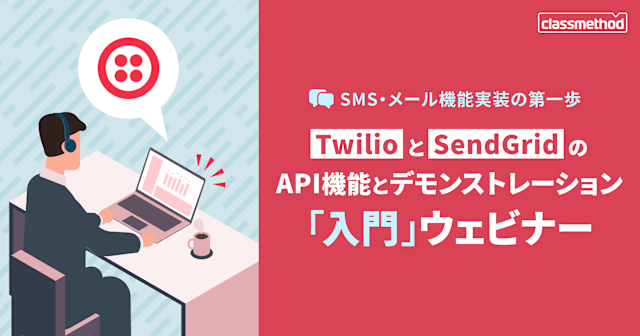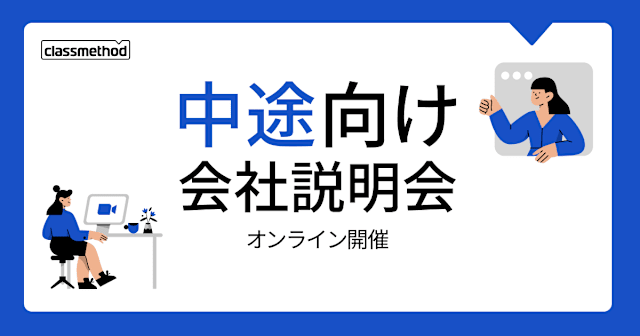
Amazon Comprehend と Amazon Translate を使って事前に英語に変換して Amazon Q と会話できるようにしてみた #AWSreInvent
この記事は公開されてから1年以上経過しています。情報が古い可能性がありますので、ご注意ください。
はじめに
こんにちは、森田です。
先日発表された Amazon Q の会話型 Q&A 機能は、 AWS のトラブルシューティングに非常に便利な機能です。
一方で、Amazon Q には、以下のような記載があり、多言語で回答はできるものの、英語のほうが良い回答を得られるという記載があります。
Amazon Q can respond in multiple languages. However, Amazon Q performs optimally for English language conversations and interactions.
Only English language documents are supported for indexing.
https://docs.aws.amazon.com/amazonq/latest/business-use-dg/supported-languages.html
例えば、英語で質問を行わない場合は、以下の事象が発生する場合があります。
質問と回答での言語の相違

データソースを適切に使用することができない
日本語

英語

そこで、本記事では、Amazon Translate を使って事前に英語に変換することで、 Amazon Q と英語以外でも柔軟に会話できるようにしてみました!
やりたいこと
ユーザより入力される言語については、日本語以外も対応させたいので、 Amazon Comprehend を利用して言語コードを取得し、Amazon Translate を使用して英語に変換します。
また、本記事では、事前に言語変換を行う都合上、Amazon Q とのインターフェースとして、Slack を利用することとします。

やってみる
前提条件
コードは、ゼロから作成するのではなく、amazon-q-slack-gateway をベースに作成していきます。
上記のサンプルには、Amazon Q、デプロイ環境、 Slack App のセットアップが必要となっております。
本記事では、解説しませんが、以下のブログにて解説されておりますので、ご参考ください。
データソースの追加
今回は検証のため、以下のPDFファイルを Amazon Q Application のデータソースとして追加します。
Amazon Q Application のコンソールからAdd data sourceを押下します。

Upload docsからPDFファイルのアップロードを行います。

コード
コードについては以下のリポジトリに配置しております。
追加したコード
IAM Role の権限変更
Amazon Translate と Amazon Comprehend の権限を追加します。
role: new Role(this, `${suffix}-Role`, {
assumedBy: new ServicePrincipal('lambda.amazonaws.com'),
managedPolicies: [
ManagedPolicy.fromAwsManagedPolicyName('service-role/AWSLambdaVPCAccessExecutionRole')
],
inlinePolicies: {
SecretManagerPolicy: new PolicyDocument({
statements: [
new PolicyStatement({
actions: ['secretsmanager:GetSecretValue'],
resources: [slackSecret.secretArn]
})
]
}),
TranslatePolicy: new PolicyDocument({
statements: [
new PolicyStatement({
actions: ['translate:TranslateText', "comprehend:DetectDominantLanguage"],
resources: ["*"]
})
]
}),
DynamoDBPolicy: new PolicyDocument({
statements: [
new PolicyStatement({
actions: ['dynamodb:DeleteItem', 'dynamodb:PutItem', 'dynamodb:GetItem'],
resources: [dynamoCache.tableArn, messageMetadata.tableArn]
})
]
}),
ChatPolicy: new PolicyDocument({
statements: [
new PolicyStatement({
actions: ['qbusiness:ChatSync', 'qbusiness:PutFeedback'],
// parametrized
resources: [`arn:aws:qbusiness:*:*:application/${env.AmazonQAppId}`]
})
]
})
}
})
言語コード取得
comprehend.ts では、言語コードの取得を行います。言語コードが取得できない場合は、日本語として扱うことにしています。
import * as AWS from 'aws-sdk';
// Amazon Comprehendのインスタンスを生成
export const client = new AWS.Comprehend();
export const getLanguage = async (Text:string):Promise<string> =>{
let params = {
Text
};
let response = await client.detectDominantLanguage(params).promise();
if (!response.Languages || response.Languages.length === 0 || response.Languages[0].LanguageCode==undefined) {
return "ja"
}
return response.Languages[0].LanguageCode;
}
翻訳
translate.ts では、入力された言語コードを元に、翻訳をかけます。
import * as AWS from 'aws-sdk';
// Amazon Translateのインスタンスを生成
export const client = new AWS.Translate();
export const Translate = async (text:string, source:string, target:string) =>{
// 翻訳のパラメータを設定
let params = {
Text: text,
SourceLanguageCode: source, // 元の言語
TargetLanguageCode: target // 翻訳先の言語
};
// 翻訳の実行
let res = await client.translateText(params).promise();
return res.TranslatedText;
}
Slack Event Handler
上記で作成した関数を slack-event-handler.ts に反映させます。
173~175行目でユーザから入力されたテキスト情報から、言語コードを取得して、英語に変換しています。
また、238行目では、 Amazon Q から取得した英語のテキストも言語コードを使用して、元の言語に変換を行います。
export const handler = async (
event: {
body: string;
headers: { [key: string]: string | undefined };
},
_context: Context,
_callback: Callback,
dependencies = {
...chatDependencies,
validateSlackRequest
},
slackEventsEnv: SlackEventsEnv = processSlackEventsEnv(process.env)
): Promise<APIGatewayProxyResult> => {
logger.debug(`Received event: ${JSON.stringify(event)}`);
logger.debug(`dependencies ${JSON.stringify(dependencies)}`);
if (isEmpty(event.body)) {
return {
statusCode: 400,
body: JSON.stringify({
error: 'Bad request'
})
};
}
// You would want to ensure that this method is always here before you start parsing the request
// For extra safety it is recommended to have a Synthetic test (aka Canary) via AWS that will
// Call this method with an invalid signature and verify that the status code is 403
// You can define a CDK construct for it.
if (!(await dependencies.validateSlackRequest(event.headers, event.body, slackEventsEnv))) {
logger.warn(`Invalid request`);
return {
statusCode: 403,
body: JSON.stringify({
error: 'Forbidden'
})
};
}
const body = JSON.parse(event.body);
logger.debug(`Received message body ${JSON.stringify(body)}`);
// Read why it is needed: https://api.slack.com/events/url_verification
if (!isEmpty(body.challenge)) {
return { statusCode: 200, body: body.challenge };
}
if (!isEmpty(event.headers['X-Slack-Retry-Reason'])) {
const retry_reason = event.headers['X-Slack-Retry-Reason'];
const retry_num = event.headers['X-Slack-Retry-Num'];
logger.debug(
`Ignoring retry event (avoid duplicate bot requests): Retry-Reason '${retry_reason}', Retry-Num '${retry_num}'`
);
return {
statusCode: 200,
body: JSON.stringify({
error: `Ignoring retry event: Retry-Reason '${retry_reason}', Retry-Num '${retry_num}`
})
};
}
// handle message and threads with app_mention
if (!['message', 'app_mention'].includes(body.event.type) || isEmpty(body.event.client_msg_id)) {
console.log(`Ignoring type: ${body.type}`);
return {
statusCode: 200,
body: JSON.stringify({
error: `Unsupported body type ${body.type}`
})
};
}
if (isEmpty(body.event.channel) || isEmpty(body.event.text)) {
return {
statusCode: 200,
body: JSON.stringify({
error: `No channel or text to response from`
})
};
}
const channelKey = getChannelKey(
body.event.type,
body.team_id,
body.event.channel,
body.event.event_ts,
body.event.thread_ts
);
const channelMetadata = await getChannelMetadata(channelKey, dependencies, slackEventsEnv);
logger.debug(
`ChannelKey: ${channelKey}, Cached channel metadata: ${JSON.stringify(channelMetadata)} `
);
const context = {
conversationId: channelMetadata?.conversationId,
parentMessageId: channelMetadata?.systemMessageId
};
let attachments: Attachment[] = [];
const input = [];
const userInformationCache: Record<string, UsersInfoResponse> = {};
const stripMentions = (text?: string) => text?.replace(/<@[A-Z0-9]+>/g, '').trim();
// retrieve and cache user info
if (isEmpty(userInformationCache[body.event.user])) {
userInformationCache[body.event.user] = await dependencies.getUserInfo(
slackEventsEnv,
body.event.user
);
}
if (isEmpty(slackEventsEnv.AMAZON_Q_USER_ID)) {
// Use slack user email as Q UserId
const userEmail = userInformationCache[body.event.user].user?.profile?.email;
slackEventsEnv.AMAZON_Q_USER_ID = userEmail;
logger.debug(
`User's email (${userEmail}) used as Amazon Q userId, since AmazonQUserId is empty.`
);
}
if (!isEmpty(body.event.thread_ts)) {
const threadHistory = await dependencies.retrieveThreadHistory(
slackEventsEnv,
body.event.channel,
body.event.thread_ts
);
if (threadHistory.ok && !isEmpty(threadHistory.messages)) {
const promptConversationHistory = [];
// The last message in the threadHistory result is also the current message, so
// to avoid duplicating chatHistory with the current message we skip the
// last element in threadHistory message array.
for (const m of threadHistory.messages.slice(0, -1)) {
if (isEmpty(m.user)) {
continue;
}
if (m.text === FEEDBACK_MESSAGE) {
continue;
}
if (isEmpty(userInformationCache[m.user])) {
userInformationCache[m.user] = await dependencies.getUserInfo(slackEventsEnv, m.user);
}
promptConversationHistory.push({
name: userInformationCache[m.user].user?.real_name,
message: stripMentions(m.text),
date: !isEmpty(m.ts) ? new Date(Number(m.ts) * 1000).toISOString() : undefined
});
if (!isEmpty(m.files)) {
attachments.push(...(await attachFiles(slackEventsEnv, m.files)));
}
}
if (promptConversationHistory.length > 0) {
// We clear the history and start a new conversation because we inject the context in the prompt
context.conversationId = undefined;
context.parentMessageId = undefined;
input.push(
`Given the following conversation thread history in JSON:\n${JSON.stringify(
promptConversationHistory
)}`
);
}
}
}
input.push(stripMentions(body.event.text));
const inputMessage = input.join(`\n${'-'.repeat(10)}\n`);
const languageCode = await getLanguage(inputMessage);
const prompt = await Translate(inputMessage, languageCode, "en");
// attach files (if any) from current message
if (!isEmpty(body.event.files)) {
attachments.push(...(await attachFiles(slackEventsEnv, body.event.files)));
}
// Limit file attachments to the last MAX_FILE_ATTACHMENTS
if (attachments.length > MAX_FILE_ATTACHMENTS) {
logger.debug(
`Too many attached files (${attachments.length}). Attaching the last ${MAX_FILE_ATTACHMENTS} files.`
);
attachments = attachments.slice(-MAX_FILE_ATTACHMENTS);
}
const [output, slackMessage] = await Promise.all([
chat(prompt, attachments, dependencies, slackEventsEnv, context),
dependencies.sendSlackMessage(
slackEventsEnv,
body.event.channel,
`Processing...`,
[getMarkdownBlock(`Processing...`)],
body.event.type === 'app_mention' ? body.event.ts : undefined
)
]);
if (output instanceof Error) {
const errMsgWithDetails = `${ERROR_MSG}\n_${output.message}_`;
const blocks = [getMarkdownBlock(errMsgWithDetails)];
await dependencies.updateSlackMessage(slackEventsEnv, slackMessage, errMsgWithDetails, blocks);
return {
statusCode: 200,
body: JSON.stringify({
chat: { context, input, output, blocks },
error: output
})
};
}
if (!isEmpty(output.failedAttachments)) {
// Append error message for failed attachments to systemMessage
const fileErrorMessages = [];
for (const f of output.failedAttachments) {
if (f.status === 'FAILED') {
logger.debug(`Failed attachment: File ${f.name} - ${f.error.errorMessage}`);
fileErrorMessages.push(` \u2022 ${f.name}: ${f.error.errorMessage}`);
}
}
if (!isEmpty(fileErrorMessages)) {
output.systemMessage = `${
output.systemMessage
}\n\n*_Failed attachments:_*\n${fileErrorMessages.join('\n')}`;
}
}
const blocks = [
...dependencies.getResponseAsBlocks(output),
...dependencies.getFeedbackBlocks(output)
];
// 回答を元の言語に変換
const systemMessage = await Translate(output.systemMessage, "en", languageCode);
const transOutput = {
...output,
systemMessage:systemMessage
};
await Promise.all([
saveChannelMetadata(
channelKey,
output.conversationId,
output.systemMessageId,
dependencies,
slackEventsEnv
),
saveMessageMetadata(output, dependencies, slackEventsEnv),
dependencies.updateSlackMessage(
slackEventsEnv,
slackMessage,
transOutput.systemMessage,
dependencies.getResponseAsBlocks(transOutput)
)
]);
await dependencies.sendSlackMessage(
slackEventsEnv,
body.event.channel,
FEEDBACK_MESSAGE,
dependencies.getFeedbackBlocks(output),
body.event.type === 'app_mention' ? body.event.ts : undefined
);
return {
statusCode: 200,
body: JSON.stringify({
chat: { context, prompt, output, blocks }
})
};
};
動作確認
質問と回答での言語が一致するか

データソースを適切に使用できるか

View sourceを押下することで、データソースの確認もできます。

最後に
今回は、AWSサービスを使って日本語の場合でも、Amazon Q で正しく回答できるように検討してみました!
また、今回作ったこちらのSlackアプリですが、APIを挟んでいるためにレスポンスまで時間を要してしまうという課題を抱えています。
もう少し素早く回答できるように今後検討してみたいと考えています!







